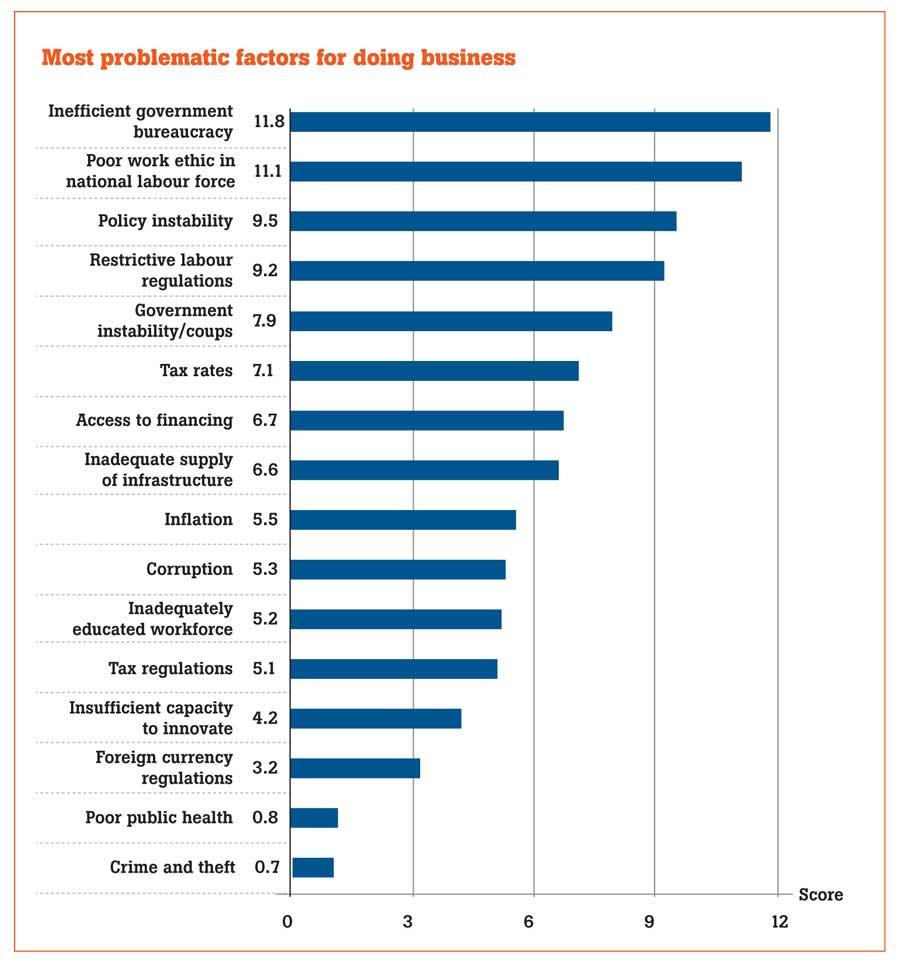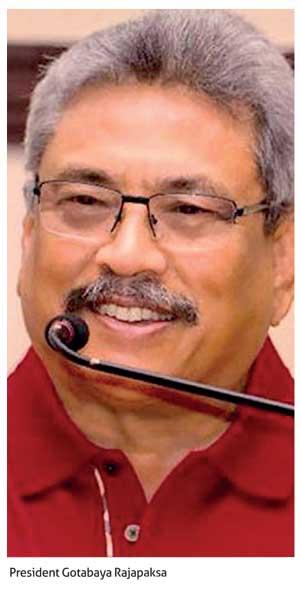24 Dec 2019 - {{hitsCtrl.values.hits}}

 The new President Gotabhaya Rajapaksa pledged during his campaign that he would create a well-disciplined, efficient, and productive public sector. He said without an efficient and productive Government we cannot take the country forward. He pointed out that the State sector employees will be empowered to deliver.
The new President Gotabhaya Rajapaksa pledged during his campaign that he would create a well-disciplined, efficient, and productive public sector. He said without an efficient and productive Government we cannot take the country forward. He pointed out that the State sector employees will be empowered to deliver.
Given the poor HR practices in the public service, the President would have to address soft issues such as culture, leadership, and motivation to make this happen. Moreover, it isn’t easy to change attitudes or relationships in the public services; they’re deeply ingrained in the services and people.
Changing behaviour is not easy, but doable. We know from research that about 50% of an individual’s values, attitudes, and behaviours come from DNA and heritage; the other 50% are learned over time new behaviours. There are many good HR private sector practices if promoted within the public sector can improve the overall productivity, improve engagement of their staff and also deliver greater value to the public.
HR practices
To begin with, private sector companies that are well-managed often get better results from their employees because employees have a strong relationship with their managers and clear communication from their managers. Employees need a manager who will provide a clear path for them, so they can concentrate on what they do best and do more of it. They also need strong relationships with their co-workers to ensure there is team synergy. They must feel a commitment toward their co-workers and because that commitment enables them to take risks and reach for excellence. Unlike public sector managers, in the private sector, managers are required to challenge employees within their areas of talent, then help them to gain the skills and knowledge they need to build their talents into strengths. In addition, managers are required to help their employees to develop ownership of their goals, targets, and milestones, so employees can enhance their contributions to the company and increase their impact.
No skills matching
On the other hand, in the public sector, there is no skills matching at all and goal setting is very poor. As a result, the workforce in the public sector is largely disengaged. Why? Because employees know their potential is being wasted – that they don’t make full use of their talents and strengths in their role. For example, secretaries are assigned to ministries with no knowledge of the subject, and they cannot fit into the role effectively, they become a square peg in a round hole.
Ministry Secretaries must act like a CEO of a company and not only an administrator who has only mastered the FRs and the ARs. The appointing authority must finally take responsibility for putting the right person in the right place. Therefore, like the private sector, the public sector must set robust goals, meet and exceed expectations, and work enthusiastically toward the nearest tough task. The other weak practice I have seen in the public sector is that they leave their best employees alone. Great managers do just the opposite. Great managers spend most of their time with their most productive and talented employees because they have the most potential. If a manager coaxes an average performance from a below-average employee, she still has an average performer. However if she coaches a good employee to greatness, she gains a great performer.
Way forward for the public sector
Start with expectations. Do the employees have clarity about their roles? Are they confused about what the government and the public, need them to contribute every day? Then make sure they have the right materials, equipment, and information to move towards those outcomes.
Next, refocus on employees – on their skills, knowledge, and talents. Employees who get to do what they do best every day move toward improving performance.
And last but not least, catch them doing things right. Recognise them for excellence. Recognition is personally fulfilling, but even more, recognition communicates what an organisation values, and it reinforces employee behaviours that reflect those values. Therefore secretaries, as the Chief Executive Officer, must learn to set clear expectations, give their staff the right materials, focus on the employee, and recognise the best performers – those are the strategies that drive top performance in the private sector. Therefore, before a secretary assumes their duties they should take a course in HR for non-HR to ensure they appreciate that all strategy is executed by people and that they are supported, trained and equipped to deliver.
Conclusion
In the final analysis, it is the Public Service that implements the policies of the government; therefore those people entrusted with running the government need to spend some quality time to ensure the public servants are better motivated with performance rewards, based on a transparent performance evaluation system involving every ministry, department, unit and individual. Many make the mistake that everything begins and ends with the minister. All the visionary policies of Lee Kuan Yew would have come to naught had he failed to motivate the public servants in Singapore to perform.
(The writer is a thought leader)
27 Dec 2024 31 minute ago
27 Dec 2024 46 minute ago
27 Dec 2024 58 minute ago
27 Dec 2024 1 hours ago
27 Dec 2024 1 hours ago